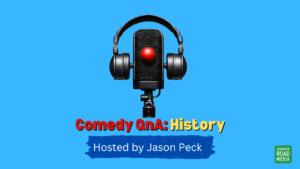The 32 Most Influential Comedians of All Time – I’m aware that writing such a post may alienate a certain portion of my readers, but what you have to remember is any such list is subjective. You might not find one of these comedians funny and you may want a completely different bunch of people listed.
These performers have all been key voices in the solo comedy artform during the 20th and 21st Centuries. As a result of that, I wanted to be able to list them here on my blog because, sometimes on lists such as these, a comedian can be left off. Remember, this is my list of influential comedians. It’s not the final word on the subject.
Some of these names you may have heard of, some you may be hearing for the first time. Each is important in his/her own way in helping to advance and shape comedy and influence all those who followed.
I also had to limit the list to stand-ups only, otherwise the list would’ve been enormous. Other notably influential comics I wanted to include were Peter Sellers, Groucho Marx, Bill Murray, Spike Milligan, Morecombe & Wise, Monty Python and Larry David. But the list would’ve then covered sketch comedy, double acts, T.V. comedy and film comedy so I had to draw a line somewhere.
I have also tried to include video clips where I can, so that you can sample the comedian’s work if you haven’t done so previously.
So, in no particular order, I present The 32 Most Influential Comedians of All Time:
Continue reading



